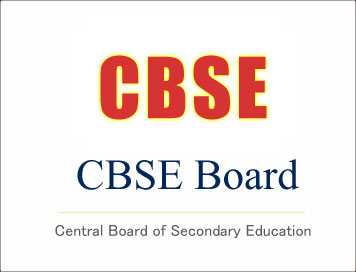CBSE : Information of CCE & ASL & NVEQF - 2014
Disclaimer: This website is NOT associated with CBSE, for official website of CBSE visit - www.cbse.gov.in

Central Board of Secondary Education
Continuous and Comprehensive Evaluation (CCE)
The CCE scheme is one of the flagship programme of the board which has been implemented for students up to secondary level, in all CBSE affiliated schools. CCE envisages conceptual clarification through experiential learning in classrooms as the focus is placed on both scholastic and co-scholastic areas along with developing Life Skills, attitudes, creative and critical thinking, social skills and skills to cope with stress. As per the scheme, four Formative Assessments (FA) and two Summative Assessments (SA) in class IX and X are taken into account for evaluation. FA4 has been replaced by PSA (Problem Solving Assessment) in the subjects of one language (English/Hindi), Science, Maths & Social Science.
Each academic year has been divided into two terms:
First Term : FA1 (10%) + FA2 (10%) +SA1 (30%) = 50% and Second Term : FA3 (10%) + FA4/PSA (10%) + SA2 (30%) = 50%.
The entire assessment consists of three parts:
Part I: Scholastic Areas, Part II: Co-Scholastic Areas such as Life Skills, Work Education, Visual and Performing Arts, Attitudes and Values, Part III Co- Scholastic Activities such as Literary and Creative Skills, Scientific Skills, Information and Technology, Organizational and Leadership Skills, Health and Physical Activities, Sports etc.
The assessment is conducted under two schemes.
Scheme I There is no board examination at secondary (Class X) level for students studying in the schools affiliated to the board who do not wish to move out of the CBSE system after class X.
Scheme II Students of schools affiliated to the board who wish to move out of the CBSE system after class X (Pre-University, Vocational course, Change of Board etc.) are required to take the board’s external examination at secondary (Class X) level.
-
Problem Solving Assessment was conducted on 18th January, 2014 by the Board with the objectives of assessing students’ abilities to analyse given life situations, to comprehend and interpret written text and other essential higher order thinking skills.
-
Open Text-Based Assessment : The Board recommends that multiple modes of assessment need to be provided to cater to the varied abilities of individual strengths of learners. It has been decided to introduce an element of Open Text-based Assessment for classes IX and XI, meant to incorporate analytical and theoretical skills, thus moving away from memorization.
Assessment of Speaking and Listening Skills (ASL)
CBSE has decided to give 10% weightage in Formative and Summative Assessments in the Assessment of Speaking and Listening Skills. Therefore the Assessment of Speaking and Listening Skills will be done formally at the termend examination in Summative Assessment – II. Schools may conduct ASL themselves as per the guidelines provided by the CBSE. However, assessment of these skills may also be done under the formative activities spread over two terms.
National Vocational Education Qualifications Framework (NVEQF) – Now known as National Skills Qualifications Framework (NSQF)
As per the mandate, CBSE has introduced four vocational subjects namely Retail, Automobile, Information Technology and Security in selective schools from the session 2012-13 from class IX onwards. Wherein, it was envisaged to offer these vocational subjects either as a compulsory sixth subject or as a sixth additional optional subject in Class IX and X. First batch of class X would appear in 2014 examinations.
Schools opting the vocational subject as a compulsory sixth subject shall follow the rationalized syllabus for the core subjects of Mathematics, Science, Hindi and Social Science and their assessment will be carried out as per the norms of CCE. Similarly, for all four vocational subjects assessment will be carried out as per the CCE norms except in case of Summative Assessment I and SA-II wherein, the distribution of marks between theory and practical is 30:60. Provision has also been made to assess the skill by experts nominated by the respective Sector Skills Council (bodies of industries) for the purpose of issuing joint certificate with the Sector Skills Council.
CBSE TELE COUNSELLING
Is offered by trained counselors and Principals from within CBSE affiliated schools located in and outside India. It is a voluntary, free of cost service provided by the participants.
This year 59 Principals, trained counselors from CBSE affiliated government and private schools and few psychologist will participate in Tele- Counselling and address exam related psychological problems of the students. 49 of them are available in India while 10 are located in Nepal, Kingdom of Saudi Arabia (Al Khobar, Riyadh), Japan, UAE (Dubai, Sharjah, Ras Al Khaimah) and Kuwait.
Centralized Toll Free Access in India
Students can dial a toll free number 1800 11 8004 from any part of the country which gives centralized access to CBSE helpline. While the general queries are answered by the operators, students are connected to the principals or counselors in case of exam related anxiety or stress.
Counselling for Differently Abled Children For the fifth year CBSE has arranged to provide counselling to differently abled children to take care of the needs and anxiety of special children.
QUESTION-ANSWER COLUMNS:
CBSE experts are answering queries of students through weekly question answer columns published in national newspapers like The Hindustan Times including HT Main and HT Horizon (Education), Malyalam Manorama and Amar Ujala during the month of February.
ON-LINE COUNSELLING:
Public can also log on to the CBSE website and Interact with Chairman on exam related issues. The Professor and Director (Academic, Research, Training and Innovation) and Controller of Examinations.
CBSE WEBSITE:
Information related to examinations and techniques to cope with exam related anxiety is also provided at the CBSE website www.cbse.nic.in by accessing icon Helpline.
Go Back To Main Page
Courtesy : CBSE